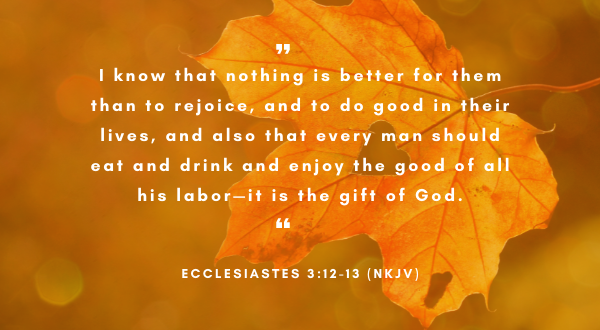It is an annual practice of mine to clear the clutter at the end of the year. I go through my wardrobe and various cabinets and reorganise them. Inevitably as I do this, I discover things that I have forgotten and things that are past their “best use by” date. These laid dormant behind or under other more useful stuff. Even though most of these were not missed throughout the year, getting rid of say a pair of jeans can be quite a mental-emotional tussle!
But it is not just material stuff that clutters our cupboards and cabinets, our thoughts, emotions and certainly, schedule can be cluttered too. The problem with clutter is that it causes a lack of clarity in our lives. Just like you are never quite sure if you still have that baking flour that you have not used the last six months, you are never quite sure what you should think or do when you are all “cluttered-up.”
While a new year might have begun, possibly things are still what they were last year. It is not the setting of goals and resolutions that changes our lives, it is the cultivating of better habits to achieve them. And that requires us to get rid of the old unusable stuff. What are some unusable stuff that you have carried over into the new year? Here are three key areas to declutter for greater clarity and focus.
1. Declutter Your Calendar

The most important decluttering is your calendar. First, if you want a life that is Spirit-led and God-blessed, ensure that you free up time for God. Take the biblical injunction to put God first in your life seriously.
Love the Lord your God with all your heart and with all your soul and with all your mind and with all your strength.
Mark 12:30, NIV
If your current calendar is filled with unproductive activities and uninspiring people, especially those which take you away from God, it needs a redo! Go ahead and list those activities that you know are a waste of energy and time. One of these would certainly be scrolling aimlessly through social media or spending too much time creating the perfect post!
Prioritise time with God and make sure you avail yourself for spiritual activities that build and bless your life such as worship, prayer, fellowship, and serving.
2. Declutter Your Workspace

People with a cluttered workspace are generally less efficient and more frustrated than those who work from an organised space. Assign a proper place for all your essentials and get rid of the non-essentials at your workstation.
In decluttering, set the goal of doing excellent work every time you are at your workstation. Don’t just aim for getting your work done. Rather, set yourself up to work proficiently. An organised space that allows you to easily access whatever you need will help you to focus better and work faster.
Do you see a man who excels in his work? He will stand before kings; He will not stand before unknown men.
Proverbs 22:29, NKJV
3. Declutter Your Mind
The inability to focus deeply has to do with the constant distractions we submit our minds to.
While curiosity is often thought of as a positive trait, in this current noisy social network culture, it has resulted in our inability to quieten down within. Our mind is not only constantly stimulated but filled with useless and unreliable information. Our many interests encouraged by an increasingly smaller world, have compromised the quality of our relationships and our ability to savour mindfulness.
Being easily distracted is an unconscious habit that many people have learned in recent times.
One of the fastest ways to declutter your mind is to limit your social media consumption. The media you consume has a great effect on your mental and emotional wellbeing. Marriage counselors now list social media as a cause of marriage breakdowns! An overload of information not only clogs your brain but causes stress and anxiety. The endless media-related chat puts tremendous stress on your mind.

Another effective way to declutter your mind is to talk to someone you are close to. Sharing your thoughts and emotions can clear up your scrabbled thoughts and pent-up emotions. It can also help you have a more objective perspective. It is crucially important to set our minds on the right things since our life goes in the direction of our minds.
For those who live according to the flesh set their minds on the things of the flesh, but those who live according to the Spirit, the things of the Spirit. For to be carnally minded is death, but to be spiritually minded is life and peace.
Romans 8:5-6 (NKJV)
The goal of decluttering is to get out of the messy, distracted, and unprofitable way of living and get into a simpler, more focused, and blessed way of life. As you declutter your life, may you discover the joy and blessing of a God-focused life this year!
The Lord bless you and keep you;
The Lord make His face shine upon you,
And be gracious to you;
The Lord lift up His countenance upon you,
And give you peace
Numbers 6:24-26, (NKJV)



















